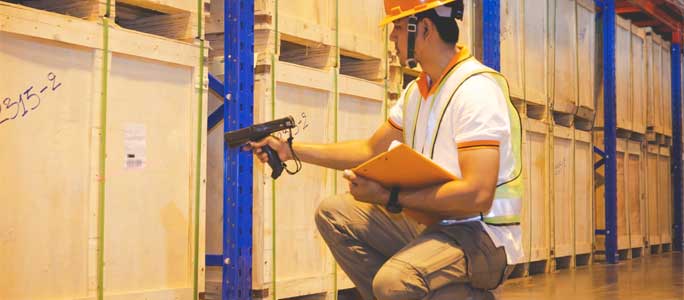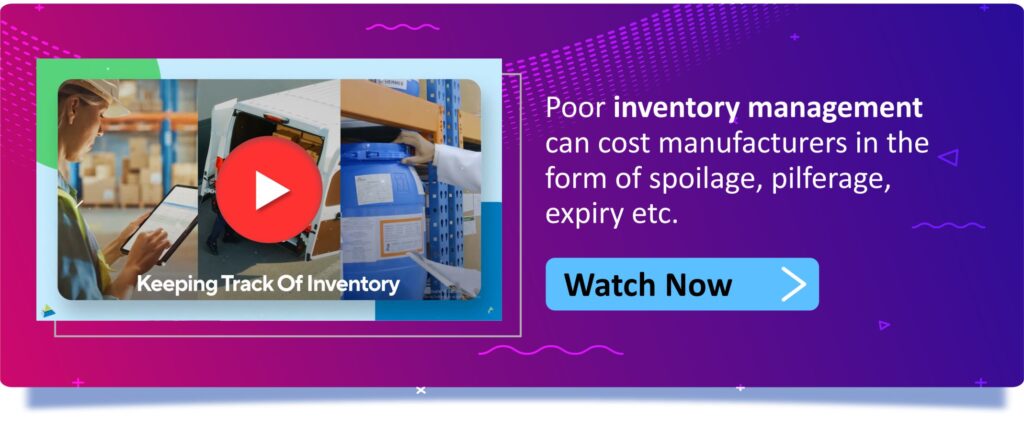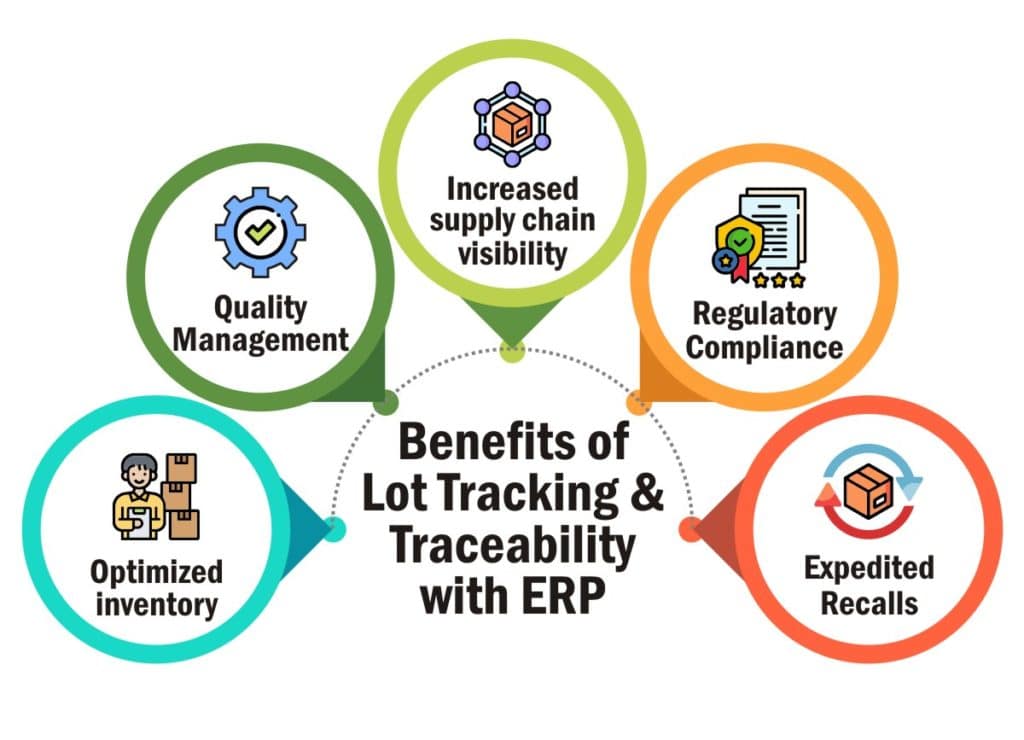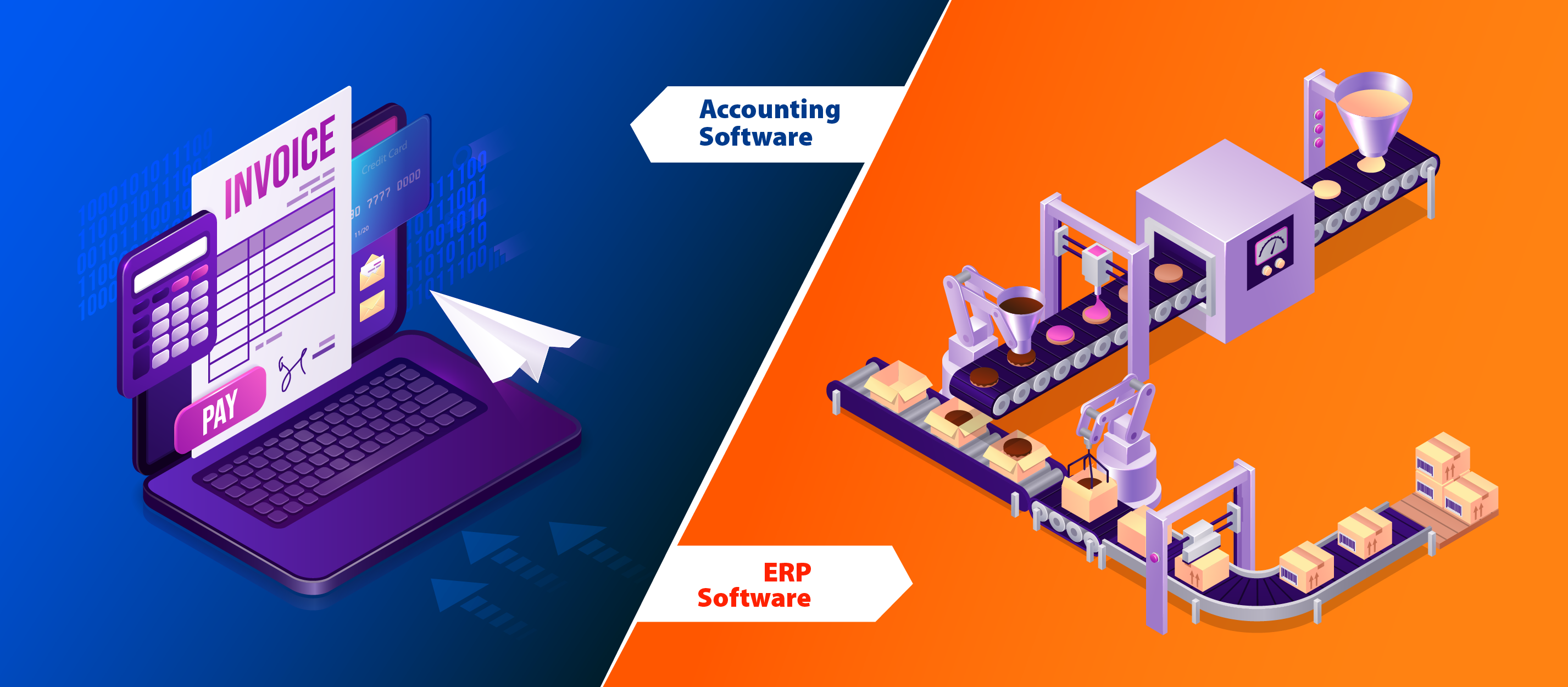
Overview
In the times of global marketplaces and disruptions like COVID-19, quality & safety are the most important characteristics of a manufactured product.
In highly-regulated process manufacturing industries like food & pharmaceuticals, any inconsistency in these virtues can potentially threaten the well-being & health of the consumer.
To avoid any such mishaps, supply chain managers need to implement & constantly improve lot control and traceability in the value chain.
Along the path of the manufacturing supply chain, inventory takes many forms. Starting from raw materials, inventory gradually transforms into in-process goods, co-product, by-product & finally into finished goods.
The tracking and tracing of these products at their different stages is necessary for the organization’s accountability to the government, regulatory bodies and customers.
To achieve greater visibility in the supply chain, a lot control and traceability mechanism should be implemented.
What is Lot Control & Traceability?
Lot control is the process of assigning numeric/alphanumeric IDs to specific groups of inventory items as soon as they arrive at the warehouse.
With lot control, manufacturers can track the precise location, quantity, expiration, physical properties etc. of the items and ensure accurate visibility of inventory (including allocated stock).
Lot control through IDs lets organizations associate information like date of receipt, supplier details, Certificate of Analysis (COA) etc. to the group of items.
The seed of lot traceability is sown by assigning Lot IDs to specific inventory items. The ID assigned to a cohesive group of items at their arrival becomes the reference through which lot traceability is conducted in the organization.
Be it raw material or finished good, a lot ID can tell you where a product has come from and where it is heading. This cumulative information can assist manufacturers in the case of product recalls and internal quality audits.
Forward traceability entails taking a batch of materials and tracing them through the process, including work in progress, all the way to the finished products that were made with those materials right to their delivery to the customer.
Whereas, tracing a product starting from the customer, to the batches in which they were produced, all the way to the materials/components level and also to the suppliers from whom they were received is backward traceability.
Manufacturers often feel the need of an ERP system to effectively execute lot control and both these phenomena in their organization.

How ERP helps…
A paper-based approach to lot control and traceability comes with many challenges.
The creation of lot IDs manually can prove to be error-prone and the tracking of materials would require redundant cycle counts in the warehouse, wasting important time & effort.
Therefore, instead of relying on manual procedures and departmentally siloed data, companies should deploy an ERP system to integrate the entire traceability matrix into a single system and onto a unified database.
The moment materials arrive in the warehouse, ERP can assign auto-generated lot numbers for them.
The manufacturer can define format for these lot numbers by embedding critical information like the date of receiving, vendor lot number, expiration date, etc.
In a numeric/alpha-numeric format, after which, they gain complete control over the movement of materials across the supply chain. This proves to be a positive reinforcement for inventory management and helps manufacturers save up on inventory carrying costs.
ERP applies traceability in the system as a tool to control usage hazards, provide reliable product information and guarantee product authenticity.
But even after observing extreme caution during production, the possibility of recalls can’t be overruled.
It is understood that recalls are a fundamental tool in the management of risks in response to safety events and emergencies.
And in case of a recall, ERP provides the ability to trace, identify, isolate and report the affected products quickly and without disruption.
Benefits of ERP for Lot Control and Traceability

Along with the above-mentioned advantages of an ERP system for lot control and traceability, some specific benefits are as follows:
Optimizing Inventory –
By assigning it a unique identification number, ERP turns every lot into an independently identifiable unit.
Storing the lot number of every item in the database, ERP can help the organization in setting up a robust and integrated lot control infrastructure.
These numbers can tell manufacturers about the availability, location, expiry, processing stage and other inventory-related characteristics of lots.
The best traceability systems include a complete and detailed record of materials available in the inventory.
Unique identification of lots can minimize loss through deterioration, pilferage, wastage and damage. Constant updates on lots ensure a continuous supply of materials and stock so that production does not suffer.
This helps companies avoid both stockpiling and stockouts, eventually minimizing the COGS (Cost of Goods Sold).
Quality Management –
Traceability offers manufacturers the opportunity to review the product flow throughout the manufacturing process and supply chain.
ERP system facilitates this constant evaluation of material properties, process modifications, machine configurations, labor skills and a lot more.
The recalibration of every element of the supply chain results in quality improvements across all business functions.
Quality control can be simplified with the help of lot control and traceability. In the event of a quality issue, ERP system can help in identifying the problematic lot and separating it on the basis of its lot number.
The cumulative information about the lot can be cross-referenced to perform root-cause analysis and get to the bottom of the problem thus always maintaining the quality and meeting the standards.
Regulatory Compliance –
An increasing number of government and regulatory bodies are making traceability compulsory with regards to compliance.
These institutions now require companies to ensure traceability at least one step further and one step backwards into the supply chain.
ERP performs complete traceability automatically with minimum efforts needed on the manufacturer’s end, thus fulfilling not just this basic compliance requirement but everything needed.
In highly regulated business environments such as the food and pharmaceutical industries, traceability ensures the identification of every ingredient and raw material down to its source.
The transparency offered by the ERP software can alert manufacturers about any potential compliance issues and help them take preventive measures to change, dispose or hold the problematic lot right where it is.
Expedite Product Recalls –
If any faulty or contaminated products somehow make it to the market, manufacturers need to act swiftly and initiate recalls. Without end-to-end traceability, manufacturers might have to recall the entire production output.
But with traceability, the company only has to identify the problematic lot and recall the products belonging to that particular production run only.
A single query and a simple search is all that a manufacturer needs to run through the ERP system in order to fetch all the data associated with the affected lot.
For industries like food manufacturing, where recalls are more frequent, ERP also lets manufacturers run mock recalls to test the effectiveness of the company’s response.
This helps in recalibrating and improving the recall mechanism.
An ERP system also enables increased visibility in the manufacturer’s supply chain. Knowledge about the location, properties and expiries of different materials can enable manufacturers to optimize their utility.
BatchMaster ERP is a competent software that supports traceability through barcodes, RFIDs and serial tracking to ease the process of audits and recalls.
If you want to know more about the capabilities of BatchMaster ERP, visit our website & schedule a demo.




















